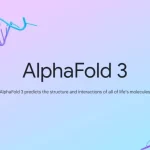
Transmission of Alzheimer’s Disease: Evidence from Long-Term Follow-up of Human Growth Hormone Recipients
February 6, 2024 Off By adminA recent article in Nature Medicine reports groundbreaking evidence suggesting that Alzheimer’s disease (AD) can be transmitted from person to person, based on the long-term follow-up of patients who received human growth hormone (hGH) derived from brain tissue of deceased donors. The study unveils a potential environmental route for acquiring AD, alongside its sporadic and inherited forms, and raises implications for revisiting preventive measures to avoid accidental transmissions through medical and surgical procedures.
Key Findings and Context:
- Iatrogenic Transmission of AD: The study focuses on patients who received hGH derived from cadaveric pituitary glands, a practice that took place until 1985. The recipients of cadaver-derived hGH were exposed to potential contamination with amyloid-beta (Aβ) seeds, abnormal proteins associated with AD.
- Parallel with Creutzfeldt–Jakob Disease (CJD): The transmission of AD mirrors the previously reported iatrogenic transmission of Creutzfeldt–Jakob disease (CJD) in patients who received the same contaminated hGH preparations. Both AD and CJD involve abnormal protein aggregates—Aβ in AD and prions in CJD.
- Five Cases of Early-Onset Alzheimer’s: The study identifies five recipients of cadaver-derived hGH who developed early-onset Alzheimer’s disease. This provides the first evidence of human-to-human transmission of AD.
- Similarities with Prion Diseases: The study suggests that propagating Aβ assemblies may exhibit structural diversity akin to conventional prions, leading to the possibility of therapeutic strategies targeting disease-related assemblies.
- Implications for Preventive Measures: While iatrogenic transmission of AD is considered rare, the findings prompt a reevaluation of preventive measures to mitigate the risk of accidental transmissions through medical and surgical procedures.
- Long Lag Time: Given the lengthy period between exposure to contaminated hGH and the development of clinical AD, the study highlights the importance of recognizing this potential risk even decades after exposure.
- Need for Further Research: The study contributes to the understanding of AD’s environmental forms and emphasizes the importance of ongoing research to explore dynamics, therapeutic implications, and preventive strategies.
Conclusion:
The Nature Medicine article presents a paradigm-shifting perspective on the transmission of Alzheimer’s disease, shedding light on iatrogenic forms alongside sporadic and inherited cases. The study underscores the need for continued investigation into the environmental factors influencing AD and provides valuable insights for future research, diagnostic approaches, and preventive measures.
More information: Gargi Banerjee et al, Iatrogenic Alzheimer’s disease in recipients of cadaveric pituitary-derived growth hormone, Nature Medicine (2024). DOI: 10.1038/s41591-023-02729-2
Table of Contents
ToggleRelated posts:
![chatgpt]()
Z-DNA Flipons & Disease: How AI is Revolutionizing Genomic Research
news![biophysics_bioinformatics]()
Focused Ultrasound Proves Promising in Easing Deep-seated Pain
news![DNA-AI-bioinformatics]()
Breakaway from Human Longevity Targets Variant Interpretation Market
news![Top 10 Innovations in Bioinformatics using AI/ML]()
AI Trends Today: The Latest Breakthroughs, Investments, and Ethical Challenges
A.I![Quantum_Computing_bioinformatics-omicstutorials]()
The World's First Logical Quantum Processor and Its Game-Changing Impact on Science and Technology
news![AI based search]()
AI's Impact on Search: Balancing Innovation, Economics, and Ethics
news![quantumcomputing]()
Combining classical and quantum systems to meet supercomputing needs
news![The Synergy of Human Intelligence and AI: Insights from Quantitative Biology]()
The Synergy of Human Intelligence and AI: Insights from Quantitative Biology
news![AI-for-drug-design]()
Revolutionizing Drug Response Prediction: AI's Role in Advancing Precision Medicine
news![A new study identifies the source of DNA alterations in melanoma.]()
A new study identifies the source of DNA alterations in melanoma.
news![AIandcancer.]()
AI Model Forecasts Patient Outcomes Across Diverse Cancer Types
news![eyes-AI]()
Transforming Diabetic Care: How AI-Powered Eye Tests Predict and Diagnose Diabetic Neuropathy
A.I![AlphaFold 3.0: An Enhanced Version of the AI Protein Prediction Tool]()
AlphaFold 3.0: An Enhanced Version of the AI Protein Prediction Tool
news![tardigrade]()
Decoding Tardigrade Superpowers: Ancient Transition Revealed in Evolutionary Tale of Resilience
news![Democratization of AI]()
AI Demonstrates High Accuracy in Identifying Rheumatic Heart Disease from Echocardiograms
news![AI tools]()
Navigating 2025: Key Trends Shaping Enterprise Technology and AI Integration
news


















